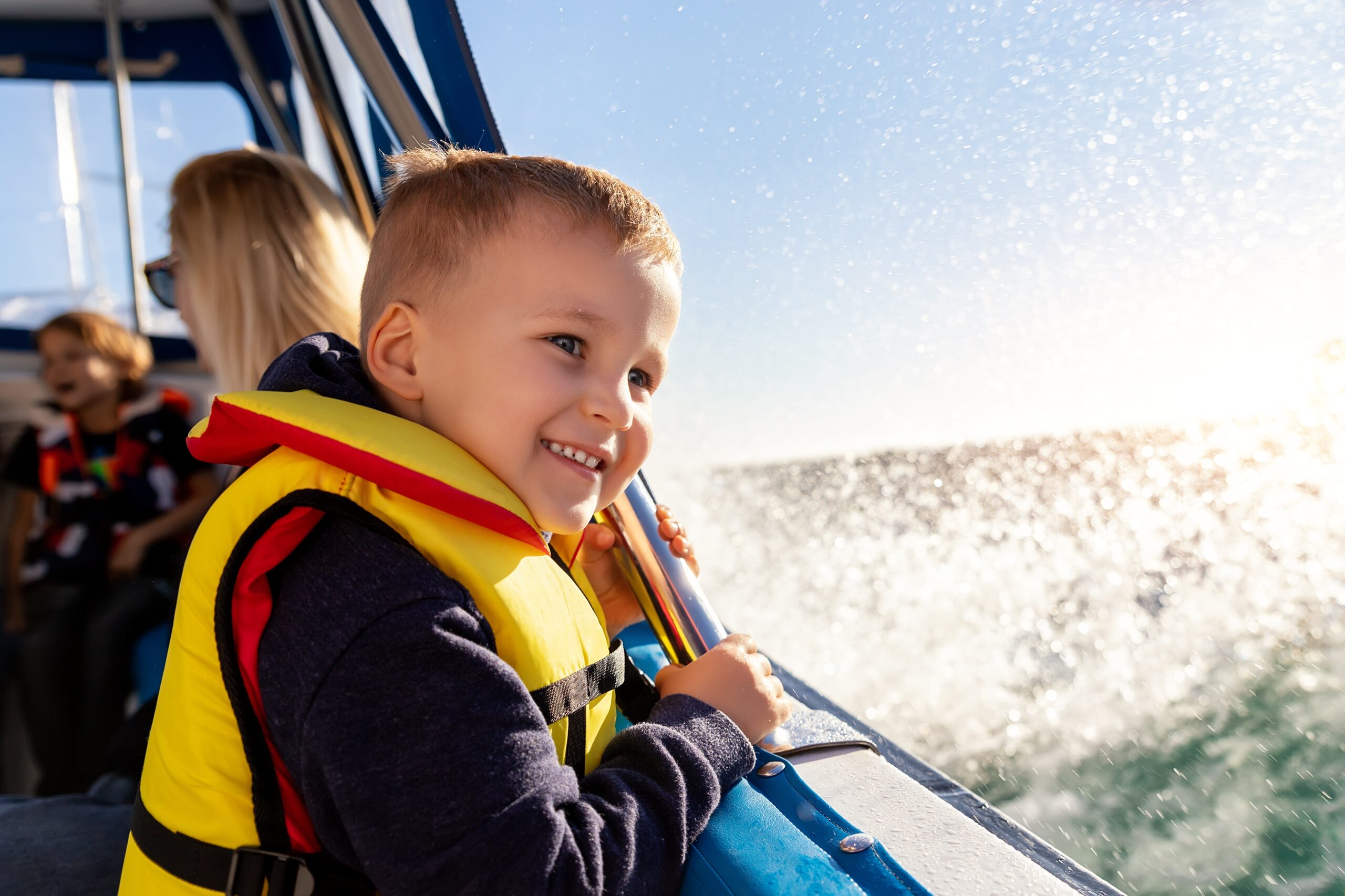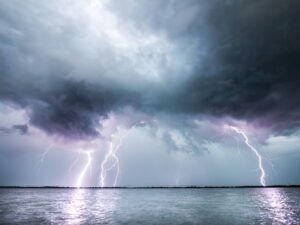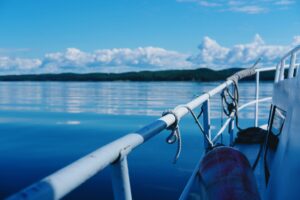
Summer is a great time to get outdoors, and many people love taking to the water to enjoy the warm weather. It’s important to take precautions when going out on the water just in case things don’t go as planned. From unexpected weather to encountering other boats or hazards on the water, you should plan ahead. This guide offers some important summer boating safety tips.
Preparing for the Trip
Whenever you’re planning a summer boating trip, you should be prepared for the worst while hoping for the best. What you do before you take off from shore can decrease your risk of encountering any problems, to begin with. Here are some summer boating safety tips for planning your trip:
- Always check the weather before you leave so that you’re not caught in hazardous conditions.
- Inspect your boat before every trip so that you’re aware of any mechanical or structural problems.
- Create a float plan and give it to someone you trust so that they can give it to authorities if something happens. A float plan should include vital information such as your boat description and license, where you plan to be and your intended return time.
Essential Safety Equipment
If you don’t already have safety equipment, you should invest in it to prepare for unexpected situations. You should have the following gear whenever you’re on the water:
- Personal flotation devices to reduce the risk of drowning.
- Visual distress signals such as lights and flares to alert others during an emergency.
- Sound devices that you can use to get the attention of other boats or people on the shore.
Safe Navigation Practices
Read the Safe Boating Guide before the start of boating season so that you’re aware of what regulations and laws you need to follow. When you’re operating your watercraft, keep in mind that it takes time for a boat to gain and lose speed. Don’t pilot your boat at unsafe speeds, or you may risk a collision or accident.
Stay on the lookout for any potential hazards in the water and use navigational aids to keep yourself aware of your location, surroundings and way back home.
Alcohol and Boating
It’s a popular pastime for people to enjoy alcohol on boating trips, but you shouldn’t ever operate a boat while under the influence. Before you leave, decide on a designated driver who knows how to operate the vessel.
This step won’t just protect you from potential accidents. It’s also the law. There is a zero-tolerance policy for boat operators who navigate while intoxicated, so choosing not to drink while operating a boat will protect you legally.
Passenger Safety
Your passengers may not have as much experience boating as you do, so it’s important to review boating safety procedures with them, such as wearing a life jacket and how to distribute weight across the vessel. For example, having too many passengers on one side of your boat could cause it to flip.
One way to prevent this is to make sure that you don’t bring more people along than you have seats available on your boat. Having people remain in their seats whenever possible can ensure even weight distribution.
Safe Water Activities
Regardless of what activities you plan to participate in, make sure you read the appropriate safety guides so that you take the right precautions. Swimming, diving and waterskiing are all activities that many people enjoy without incident, but you need to educate yourself on how to reduce your risk of danger and what to do if someone gets hurt on the water.
Make sure to review the guidelines on how to anchor and moor your boat correctly. Not doing so can result in you or your passengers becoming stranded if your boat drifts after you’ve departed it.
Emergency Preparedness
Even though you don’t want to imagine things going wrong, it’s important to be prepared. Make sure that your boat is equipped with a first aid kit, radio and distress signals so that you can perform first aid, signal other vessels when you’re in distress and make it to safety.
Another essential part of your emergency plan is making sure that you stick with your float plan. If you don’t arrive back at shore when you’ve told your contact you would, they should immediately alert authorities and have them search for your vessel. This greatly increases your chance of being found.
Weather and Environment
The weather is always changing, and even the best weather predictions can fall short. Even if you plan your trip using the latest weather reports, things can change. Take notice if you see dark clouds or lightning on the horizon and have a plan in place for how you can ride out a storm on the water.
You should also educate yourself on what environmental hazards are common in the area you plan to boat through. This helps you stay on the watch for physical hazards in the water that could capsize your boat or leave you stranded.
Have Boat Insurance in Place
Having boat insurance protects you while you’re out on the water. It doesn’t just help you pay for damage to your boat or another vessel but can cover you if you’re required to pay for someone else’s medical bills. If you ever need to file a claim, showing your insurance company that you’ve followed the other tips in this guide can help your case
Don’t have boat insurance yet? Contact us today at Portside Insurance so we can help you find a policy that suits your needs and keeps you covered this summer.





